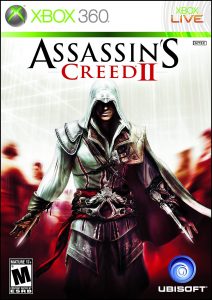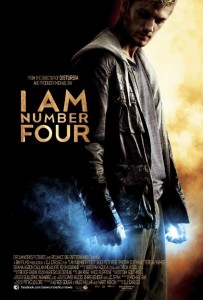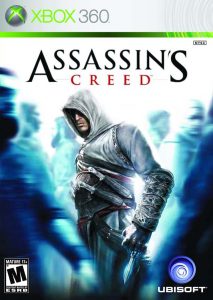A handful of years ago, a game came out that did something entirely new in the genre of first-person shooting. This was not a surprise in the scheme of things, Valve having been long known for such innovations.[1][2] But the degree of new was pretty surprising. Sure, the Half-Life games have always had an element of puzzle solving, but Portal was purely puzzle solving in a way that forced you to think of spatial relationships and three-dimensional physics as you had never done before. And it had a great deal of humor and plot crammed into its several hours of gameplay. Now, I can’t say a whole lot about Portal 2, but I’ve figured that I can almost certainly say more than most reviews I’ve seen, which are that it’s amazing and you should play it and anything else would be a huge spoiler.
Mind you, I am saying a good deal of that, I’m just working my way around the last part. Since it’s my job to, and all.[3] So, basically, in the recently-updated ending to Portal, you are dragged off by robots at the conclusion of your apparently-not-so-successful-as-all-that escape from the Aperture Laboratories facility. After a non-specific but implied period of time passes, you wake up and some brief plot occurs, followed by a nod to people who never played the original or who haven’t in a very long time, in which you learn controls and physical concepts. And then, well, then you are launched down a rabbit hole full of history, psychology, morality, and, just like last time, really a lot of puzzles and humor. And all manner of troubling revelations, also just like last time. And, well, okay, there’s a lot of just like last time to this game, although rest assured that the puzzles and the plot alike have significant updates as well. The point is that it’s not a brand new game that will leave you amazed nobody ever did this before.
It is, however, the best interactive story I’ve ever seen, from both the interactive and story sides of that equation separately. The fact that they’ve been joined into one game? I guess it’s like this. I don’t imagine it’s the best game that will ever be made, and I would easily accept arguments from people saying the first game is better; it’s all down to taste and what you want from your experience. But I cannot imagine a way that a game named Portal 2 could have been better than this one. As best I can tell, it is entirely without flaw.
And if you care about the mythology of that shared dystopian future world (which I do), I was impressed anew today by how I can take a joke line about the Black Mesa research facility from the first game’s closing song and both extrapolate very nearly precisely when Portal occurred in the shared timeline of the multiple game series and also a good deal of information about… well, and there’s that rabbit hole full of spoilers again. Because I actually don’t want to provide the hint about what else I was able to determine from that line of song, lest it simultaneously hint at events in the game you might otherwise never have anticipated. Because seeing this stuff cold? It has always been the best way. The point of this closing digression, I think, is that I expect more insights into both this game and the world of shared games as I think more about it all. And also, there’s an entirely separate two-player cooperative Portal experience that I have yet to touch. But I wanted this review while things were still very fresh; if there’s enough innovation or storyline revelation to warrant it, I’ll just have to revisit the game with another review sometime in the uncertain future.
[1] For innovating the way storylines and characters are handled in the genre, there’s the original Half-Life.
[2] For innovating the ways in which you can interact with the random detritus of your environment, look no further than Half-Life 2‘s gravity gun.
[3] And anyway, if I can’t work my way around seemingly-insurmountable obstacles in a review about a game derived from Portal? I’m clearly doing something wrong.
 I’m always so happy when I finish a game! Though in this case, it was long enough that I may need to take a break (or at least a palate cleanser) before I start anything else serious. So, remember when I hated
I’m always so happy when I finish a game! Though in this case, it was long enough that I may need to take a break (or at least a palate cleanser) before I start anything else serious. So, remember when I hated 
 To be clear, this is a pretty old game. I remember reading about
To be clear, this is a pretty old game. I remember reading about